Experimental french planes serie
- Dassault Mirage MD750
- SNCASE SE.212 Durandal
- SNCASO Déver
- Nord Harpon
- Dassault Albatros
- Leduc 0.21
- SNCASO SO.4070 "Minerve" strategic bomber
- SNCASO SO.4000
- SNCASO SO.6021 Espadon
- SNCASO TRIDENT
Here is a plane, elegant, strange, fast. This plane is a competitor of the Mystère Delta, which will later become the Mirage III.

Controls
AG 1 : Motors
AG 2 : Rocket engine
AG 3 : Arm Nord AA20 Missile
AG 4 : Lights
AG 5 : First parachute
AG 6 : Second parachute
Fire Guns to use 30mm Defa canons
Trim to Trim (only needed at low speed)


History
Dassault, Morane-Saulnier, Nord-Aviation, SNCASE and SNCASO are responding to this project with the MD 550 Mystère Delta, the MS-1100, the Nord 5000 Harpon, the Durandal and the SO-9000 Trident respectively. Breguet would also have responded with the Br.1002.

The competition will ultimately be won by a much improved version of the Mystère Delta, the Mirage III. The Durandal and Trident were built, but only as prototypes. The Br.1002, the MS-1000 and the Nord 5000 were abandoned very early on, before a prototype was built.

The Nord 5000 was first known under the designation NIL-1 (Nord Intercepteur Léger 1), with a single rocket engine (or even a Nene reactor) and a maximum take-off weight of 6000 kg, 11.5 m long and a wingspan of 7.50 m. It was thus declined up to NIL-6.

It presented itself as an interceptor with double delta wings and canard planes also in delta. The wings were well aft of the fuselage while the canard planes were well forward, under the cockpit windshield. These wings had a partition. The centreboard, triangular, recalled that of the Gyrfalcon. The concepts demonstrate either a high or a median wing layout.

Two variants followed, one single engine completed with a 1500 kgp SEPR rocket engine, the other twin engine. The air intakes were lateral and rounded, well back from the cockpit. During the time of its study, between 1952 and 1956, the engines succeeded a Nene (2200 kgp approximately) then an Atar 9 for the single engine version, two Gabizo (1500 kgp each, at least in theory) then 2 Orpheus 12 for the twin-engine version.

A swept-wing variant, the Nord 5010, was also planned.
The Nord 5000 was built as models, intended for wind tunnel testing. 4 models were built at 0.42 scale to be dropped from an airplane, and exceeded Mach 1.6 when only Mach 1.3 was expected. The Nord 5000 was slightly larger than its competitors. Nord tried to lobby the authorities for development at least as an experimental aircraft, intended to explore sustained Mach 2 flight (more than 5 minutes).

Do not hesitate to upvote, if you like this plane !
Specifications
Spotlights
- GrizzlitnCFSP 2.8 years ago
- Bryan5 2.8 years ago
General Characteristics
- Created On Windows
- Wingspan 20.7ft (6.3m)
- Length 42.0ft (12.8m)
- Height 12.6ft (3.8m)
- Empty Weight N/A
- Loaded Weight 7,466lbs (3,386kg)
Performance
- Power/Weight Ratio 9.029
- Wing Loading 29.4lbs/ft2 (143.4kg/m2)
- Wing Area 254.3ft2 (23.6m2)
- Drag Points 2076
Parts
- Number of Parts 239
- Control Surfaces 7
- Performance Cost 1,194

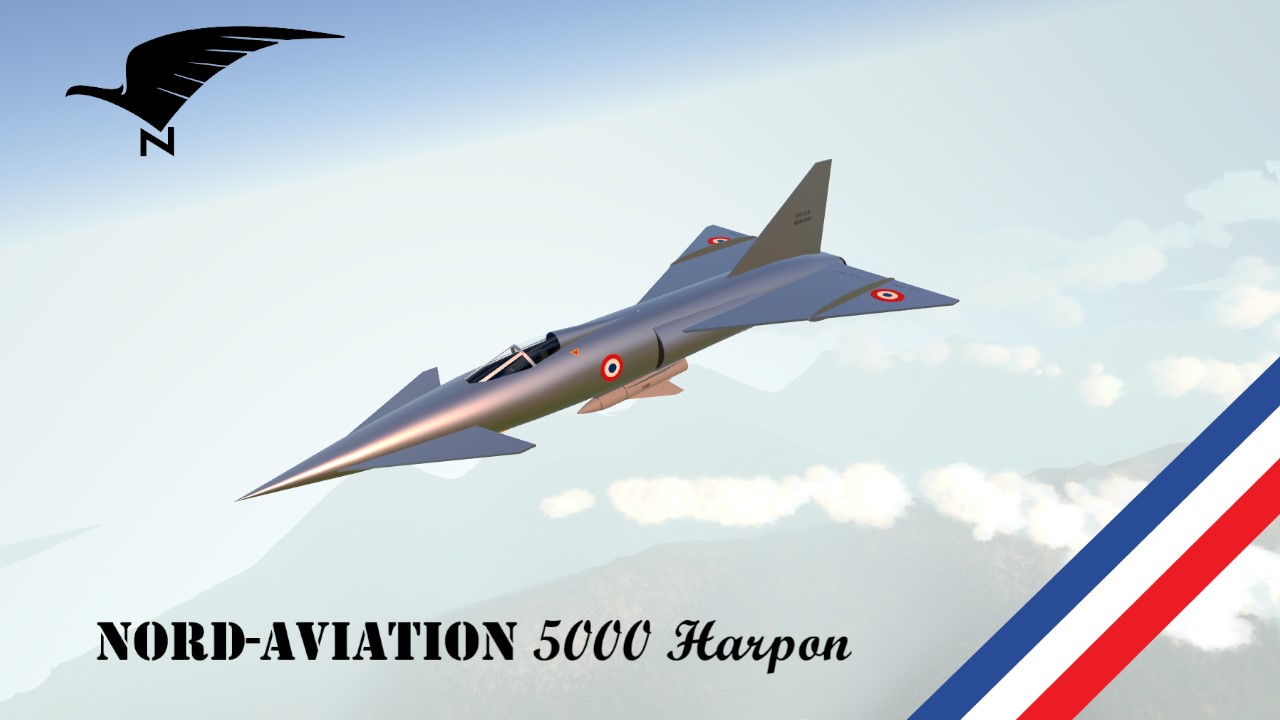
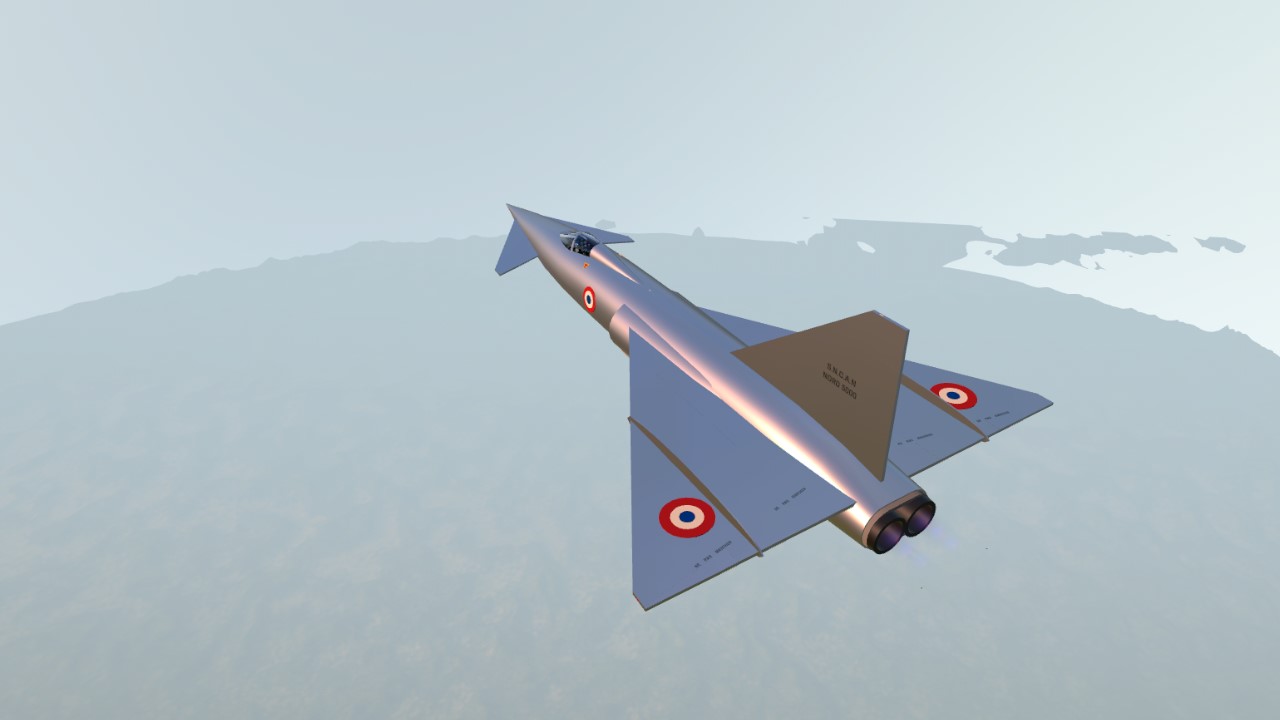
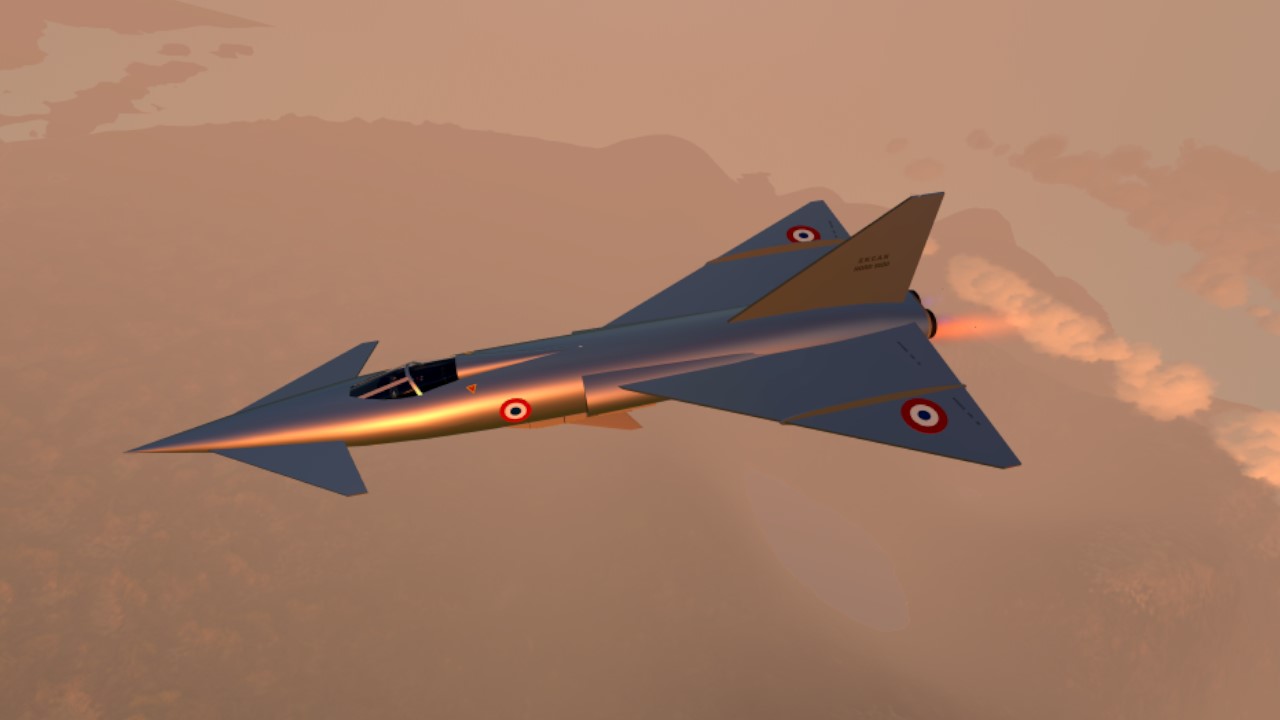
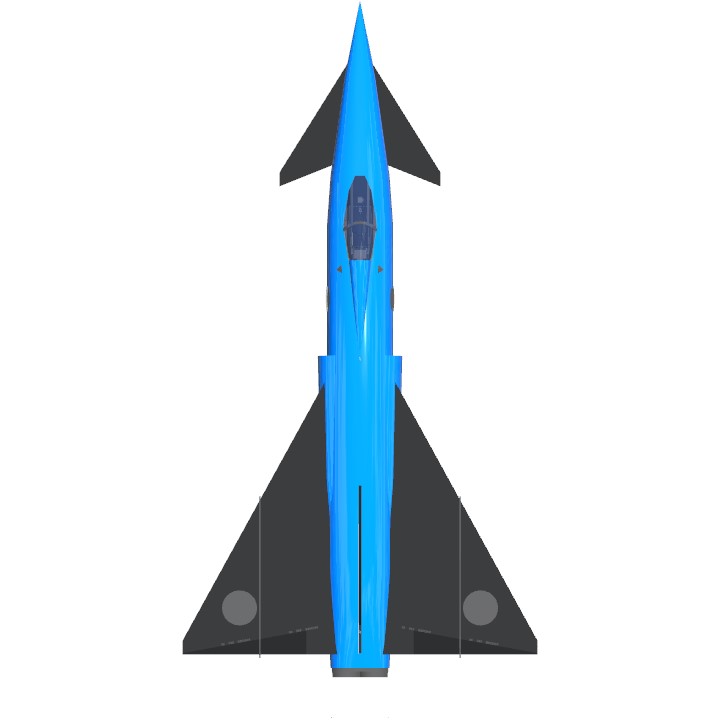
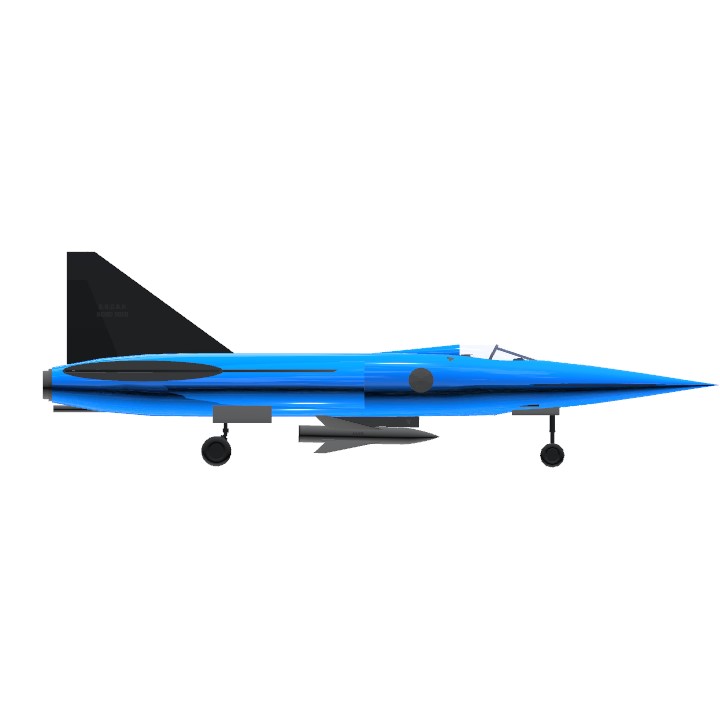
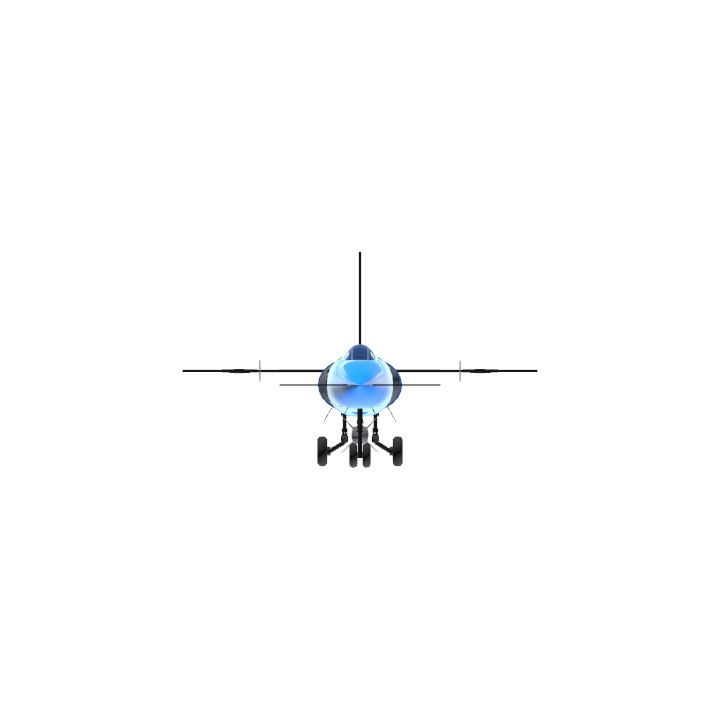
https://www.simpleplanes.com/a/9gy8tg/Dassault-Breguet-Alpha-Jet
Le rework de l'alpha jet. Bon J'ai bossé avec de vrai photos et ce n'est plus une vague ressemblance. C'est une ébauche plus poussé cette fois. Dite moi votre avis les amis!
@Ptiju23 de rien
@Bryan5 oups merci l’ami! faute orthographe corrigée
Beautiful aircraft, and im learning more about experimental french aircraft keep it up
@Ptiju23 ça s'écrit
Alphapas AlfaI love your design's
@Ptiju23 Merci !
Ça me ferait plaisir d’avoir un peu d’aide pour mon projet car j’y ai passé à peu près 15h
AlfaJet The French Military Trainer
Magnifique, franchement beau et une belle histoire de notre France
Looks sick!
@WormWithLegs
@Dathcha
@Bryan5
@mobilefriendlybuilds
@BeastHunter